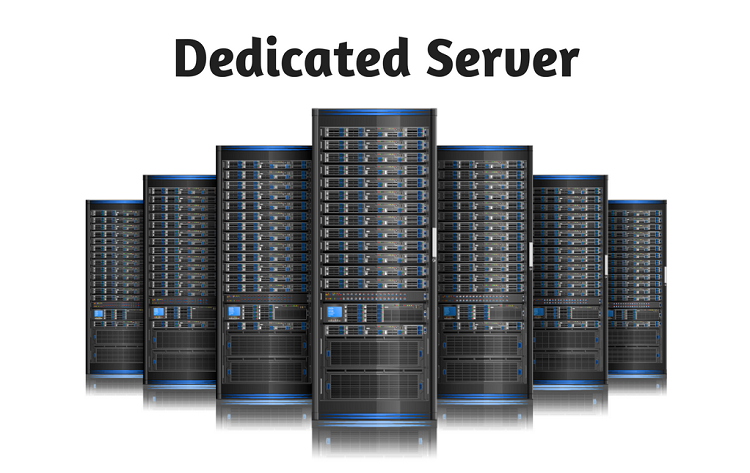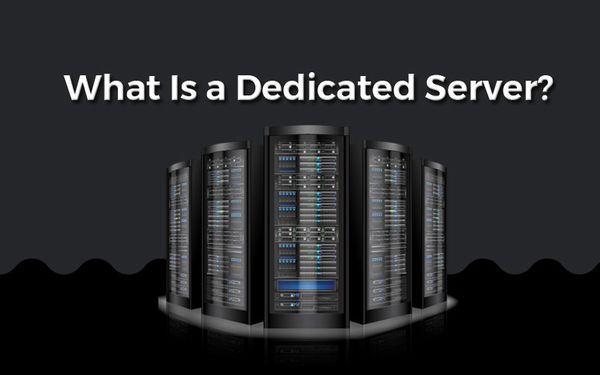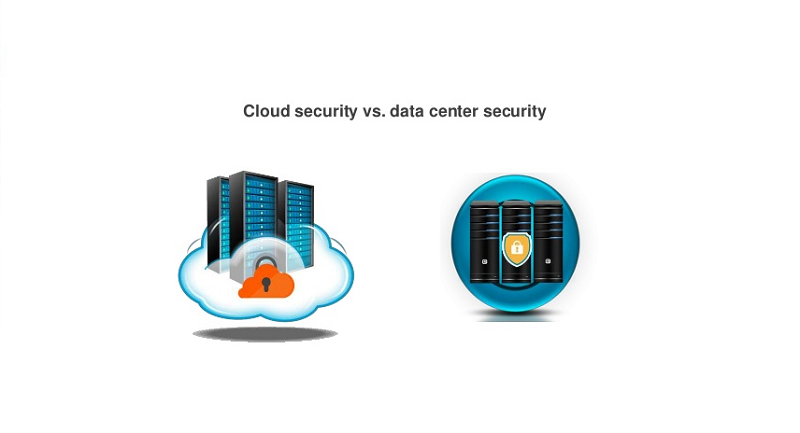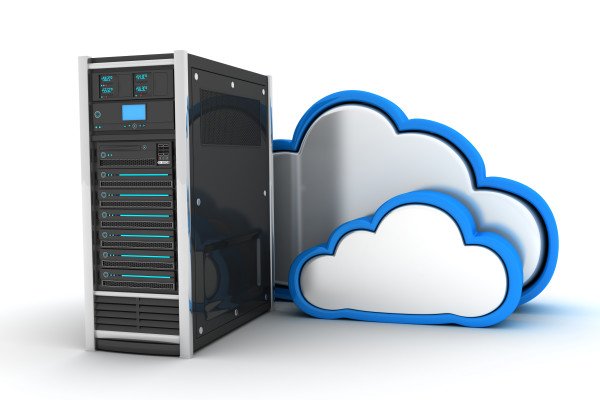Reviews 50
Server Locations
Reviews 95
Server Locations
Reviews 16
Server Locations
Reviews 866
Server Locations
Reviews 866
Server Locations
Reviews 7
Server Locations
Reviews 6
Server Locations
Reviews 25
Server Locations
Reviews 31
Server Locations
Reviews 23
Server Locations
Reviews 5
Server Locations
Reviews 5
Server Locations
Reviews 12
Server Locations
Reviews 141
Server Locations
Reviews 7
Reviews 5
Server Locations
Reviews 5
Server Locations
Reviews 5
Server Locations
Reviews 5
Server Locations
Reviews 15
Server Locations
Reviews 4
Server Locations
Definitive Guide to Dedicated Server
Several factors make a company prefer to invest in a dedicated server. One is exclusivity. As its name suggests, this model allows a server to be available to meet all the needs of just one company.

In an increasingly competitive market, organizations seek to use the right technology to achieve specific objectives, such as offering their services on a server with higher performance and more security.
In this guide, we will show in detail what a dedicated server is and what its main features and applications are.
What is a Server: Definition
By definition, in computer science, a server is a computer that has the task of processing and managing the flow of data requested by other users connected to the network - called clients, i.e. customers - within a local private network or on the internet: in some cases, it is also called a host. The term server derives from the English to serve, which precisely means servant or servant and responds exactly to its role on the network: to serve the data or web pages requested by users or visitors. When we talk about web servers, however, we mean servers accessible through the internet those host websites or cloud services.
In other words, explaining what a server is: it is a computer - which can be of a traditional size or even very large, such as large closets - connected to a network to which other devices (computers, smartphones, or tablets) are connected that act as customers.
How does a web server work?
To give a practical example of how a server works, I can explain to you in a simple way what happens while we visit a web page.
When we use a computer, a smartphone, or tablet - in this case a client - to surf the internet, when we open an internet page we are asking the server to provide us with all the data - images, HTML pages, and other information - useful for viewing the web page, video or other content directly on the screen of our device. In a few seconds, the webserver will be able to process the request and send the data to the client who will render the received data, showing them on the display.

What is a Dedicated Server?
It is very common to have doubts when contracting infrastructure services, since there are differentiated models of solutions that meet the most varied needs, such as the hosting service on dedicated servers.
Hosting means hosting. So, basically, here is a type of hosting where a server is made available to just one company. That is the reason for the dedicated term. There is also the use of the expression “Bare Metal” to refer to this server.
When using a dedicated server, the organization contracting the service can configure it according to its need for use. This means that it can be used both for installing an ERP system - Enterprise Resource Planning - and for hosting a large website.
There are numerous ways to use dedicated servers. One of them is as a complement to an existing customer infrastructure or as storage for the most varied types of data.
To better understand what a dedicated server is, we need to explain what cloud servers are. We can say that there are two types: logical and physical. In the logical model, a physical server is used and one or more server virtualizations are performed. Each of them has its own operating system and other resources.
In this model, there is the sharing of resources from the physical server, that is, if 3 logical servers are created on one physical, all will use the physical resources of the server. On the other hand, the physical dedicated server does not share its resources with other servers, so it is dedicated.
We can define a Dedicated Server as an exclusive physical hardware environment for a cloud operation. Even though virtual environments are dedicated to running isolated operating systems, it is the modality known as a bare metal server that historically carries this nomenclature.
A dedicated server offers the opportunity for companies to work with a greater consolidation of resources - processors, memory, space, etc. - at a lower cost than that found in high performance virtualized environments.
What are its characteristics?
On dedicated servers, the hardware resources are very powerful and robust. They are machines with great processing power, storage, and high traffic capacity. For this reason, they are indicated for businesses that need high performance.
Basically, its technical characteristics offer greater capabilities. However, the contracting company must assess your needs and configure the environment according to your convenience.
Due to their high processing power and a large number of resources, such as high memory and storage capacity, dedicated servers have high resilience. This means that, even when they are under intense activity, either due to the number of users accessing the server or due to data processing, the servers present an excellent response, without changing their speed.
And speaking of speed, another characteristic of these servers is their high I/O performance, that is, high speed in reading and writing to disk. On dedicated servers, this response is excellent, even in cases of access to a database with an extensive volume of information or on e-mail servers.
Why Invest in a Dedicated Server?
With the growth of recent technologies, such as Big Data, it is increasingly necessary to have resources that facilitate access to a large volume of data. All of this information is used in processing that serves as a basis for companies to make strategic decisions in their business.
A corporate file server perfectly addresses this need. In it, all information is centralized and can be easily accessed safely, and efficiently. In addition, it provides several benefits to the company. Below, check out the main ones.
Provides Greater Security for File Storage
When we talk about corporate data, we need to consider that this information is confidential, that is, it cannot be accessed by unauthorized people. On a file server, it is easier to maintain control over data, especially when using cloud servers, which have strict access control.
Allows Remote Access
Another facility that modern technologies provide is mobility. Currently, having easy access to information from any device provides great benefits to the company, because with this availability, employees can, for example, consult information to close important deals.
When using a cloud file server, the company has this benefit, since there is synchronization with all files centralized on the machine. In addition, through remote access, it is also possible to virtualize the desktop. This allows the user to access their workstation from any device.
Facilitates Business Management
The easy access to a wide variety of data allows the manager to easily interact with various strategic information and prepare reports much more easily.
Another benefit of keeping data centralized is the possibility of using it in mining tools, for the development of predictive analyzes.
Increases Productivity
Another benefit of using a cloud server is increased productivity. That's because the possibility of remote access allows employees to connect to their workstations from anywhere. Thus, different activities can be done at different times, even on weekends. This also makes home office work easier.
Allows Greater Control Over Access
A major advantage of centralizing files in maintaining greater control and security over the stored data. The use of a server requires more rigorous supervision, which contributes to the mapping of accesses. In this way, it is easier to identify, for example, who deleted or created a particular file.
It is also important that the company creates policies for the security of passwords, how to set the time for them to be changed, and create patterns that must be used, such as letters, numbers, and special characters.
How to Manage Virtual Servers?
As mentioned earlier, there are several types of infrastructure services, such as the dedicated server/cloud server. In each of them, it is necessary to monitor and manage the environment to assess resource consumption.
Make server management is essential to identify, in advance, any problems, monitor machine performance, monitor access, among other important attitudes.
Dedicated Servers
In the case of dedicated servers, the contracting company has full access to the server through a user with an administrator profile, who has full powers. In this way, it is possible to manage the entire operating system and the applications installed on the server.
KVM Console
The KVM console is the way in which the user with administrative powers accesses the server's resources through a remote connection. Various activities can be done through the console, such as rebooting, reinstalling the operating system, monitoring peripherals, etc.
Cloud Servers
The management of cloud servers is done by both the control panel and the KVM console. In virtual servers, there are basically two types of structures: the Stand Alone option, with only one virtualized machine, and the operating system, in which the environment's applications run.
There is also a multi-server model. In this structure, there are several virtual machines. Each performs a function with a specific purpose, which may have the purpose of serving one or more services.
In any of the alternatives, it is necessary to manage the resources of these servers, in order to guarantee better performance. Through the management tools, it is possible to access the server to control both the operating system and the applications.
Even if there is a problem with the operating system, it is possible to access the server with the console and reboot, for example.

What are the differences between the cloud server and the data center?
There are many doubts about what are the main differences between the cloud server and the data center. Understanding them is important for the company to identify which is the best alternative for your business and, above all, for your pocket.
Cloud Server
As mentioned, a cloud server is virtual. For companies, it means no longer having to invest in expensive hardware and software and in the entire infrastructure environment. With the use of cloud servers, they hire a service, which is the use of cloud servers.
In this model, access to the server is done virtually, via links accessed via the internet. In addition, all settings related to the service are stipulated at the time of hiring, including:
The number of servers
The total disk space
The amount of memory available to the servers
The number of processors that will be used
Traffic capacity
The operating system will be used.
Thus, the contracting company pays only for the contracted service, without worrying about maintaining the environment, specialized personnel, or other expenses to maintain a data center.
Choosing to use cloud servers provides numerous benefits to the company. Let's name a few of the most important ones.
Elasticity and Scalability
In any company, it is common to have times in the month when there is greater use of machine resources to meet the needs of the business. For example, a virtual store can have more access during holidays, such as Mother's Day, Christmas, among others.
In cloud computing, these features are added automatically, depending on the service load. Then, as soon as the job request returns to normal, the resources also return to the original state. All without interfering with the workflow.
High Availability
One of the biggest benefits of cloud servers is their high availability. This is an essential feature for many businesses, which can hardly stop. For an environment to have high availability, there must be duplication of all resources, from machine to infrastructure, such as cabling, electricity, etc.
Data Center
Maintaining a data center requires a high investment by the company. This is because its operation requires a series of special precautions, which go beyond the expenses with hardware and software. To structure it, it is necessary to prepare the space, in other words, a suitable place must be made available for the installation of a false floor, in which cables will be passed underneath to connect machines and equipment.
In addition, it is necessary to invest in a great air conditioning system, as the machines must remain in an environment with an ideal temperature. If this is not respected, they can get too hot, burning some of its components. This situation causes the service to be unavailable indefinitely.
Another concern in a data center is about security. Strict access control is required to prevent unauthorized persons from coming into contact with sensitive machines and information.
In addition, companies currently consume a large amount of data. Thus, it is necessary to invest in machines with high storage, processing, and memory power, which makes the investment even greater.
To maintain a data center, it is also necessary to invest in a communication link, as it is necessary to communicate both with other locations in the company and with the Internet. If there is no electricity, an alternative form of energy production is needed, such as generators.
Last but not least, there is an investment in specialized personnel. It is necessary to have trained professionals to keep the entire environment in perfect working order.
We saw what a dedicated server is and how it can be used in a company. In addition, we show several benefits that the use of a corporate file server provides to the company, as well as what are the main differences between cloud servers and a data center.
What are the differences between a Non-Dedicated Server and a Dedicated Server?
When the company chooses to work with a dedicated environment, the resources are available exclusively to the contractor, which favors gains in terms of scale - if there is an increase in the volume of use, traffic, requisitions, etc.
In a shared environment, on the other hand, there is not only an increase in competition in relation to resources by users, but there is a risk that one user's overload will
influence the performance of others.
Therefore, we can say that the shared environment should be used for applications with low expectations in terms of performance and availability. The dedicated environment is the most appropriate choice for those who have a critical mission in technological operation.
It is always important to remember that virtual environments can also be dedicated and there is a convention on the name “dedicated servers” to be assigned to the unique physical environment solution. The difference is exactly in the question of hardware, which is only a contractor, in the dedicated server model, and is consumed by several users in a virtualization assembly.
What are the advantages of a Dedicated Server?
Dedicated servers represent a great technological evolution in relation to what you get with a shared environment. Among the advantages, we can highlight the fact that the entire environment is exclusive to its contractor, without the competition of resources. This fact refers to totally optimized performance and a more qualified result.
It is possible to highlight, in a comparison with other market solutions, the physical dedicated server as an excellent option in terms of costs, for demands of a high amount of resources, which would be unfeasible using the public cloud.
Another positive point of the modality is the independence of complex implementations in order to have a solid operation; virtualization, without a doubt, is technologically excellent, however, there are also several dependencies of functioning and performance so that everything is really operating within normality, while the dedicated physicist has all the skills within himself.

What type of company is the dedicated server for?
The Dedicated environment is more suitable for companies that aim to achieve great results in relation to cloud operation, whether in the availability or performance of a corporate system or in the provision of service that involves the web infrastructure.
When we talk about a physical dedicated server, we can say that it is the most suitable choice for projects where there is a need to allocate a large volume of resources, at a more affordable cost.
Another point that draws attention to dedicated servers is the unique applications, such as CRM/ERP, hosting of sites with high visitation, or even multiple sites with control panel and corporate e-mail, as they behave very well in operating environments of just one server (model known as standalone).
As storages have certain administrative restrictions regarding the consumption of IOPs (input/output per second), it is also an alternative to count on the total delivery in view of the hardware capacity.
How is data security done on a dedicated server?
The Data Center guarantees all security in your environment, especially on the network. Through security tools such as Anti-DDoS and Firewall, it is possible to contain undue traffic that arrives at the dedicated server.
The other data protection attributes, such as access levels to the operating system or application, are under the responsibility of the administrator, who can be the contracting company or the provider, through a managed hosting, with the hiring of technical hours. management.
The contractor can customize the environment to suit the level of demand for his business plan - from a closed connection via VPN, as a restriction of total access only by fixed IP.
Is the Dedicated Server Suitable for Large Volumes of Data?
As we have already highlighted, in the case of large volumes, the server is the best solution in terms of cost-benefit. It is possible to store HDD or SSD of various volumetrics, thus ensuring high data density even in little space occupied in positioning. There is currently working to consolidate up to 100TB into an SSD.
Dedicated to Demanding Customers
A managed server is a service of a configured system with our proprietary panels. The server is ready to work with your data from the moment of activation. The Admin version is a guarantee of full care and support from administrators. The price includes 24/7 technical support and care of the server infrastructure. He can report a problem and order work
on the server at any time. Most often, users choose convenient solutions and prefer to pay additional administration costs. If you do not have self-administration skills, you do not have to give up the dedicated servers option - choose a dedicated server in the Admin version.
Independence - Accessible to the Few?
For experienced users, the Root version of the dedicated server means no restrictions and freedom in operation. Maybe this option is suitable for someone like you? According to the principle: No help is an obstacle on the way to your own development - you can take care of your server yourself. The available permissions will allow you to fully control the machine. It will be up to you to choose and install the operating system in which you access all of your system's commands. You decide on your own about the types and versions of your services and applications, and you also have full freedom in managing the permissions of your users.
3 steps to your independence
At first, glance, choosing a dedicated server is a very complex process. However, 3 simple steps will help you make a quick decision.
Calculate
First, start by analyzing the specifics of your business. Independent server management requires skills on many levels (implementation, administration, software operation). The decision to choose should be preceded by a thorough cost analysis. The cost estimate requires an answer to the question: how do we value the additional work for server administration? Compare the amount of time spent monitoring the machine to the price proposition for managed servers.
Configure
Do you need custom software? You do not want to give up the proven administration panel? Access to the Root account gives you the chance to be fully customized to your individual needs. Servers of this type work well when the project implemented in the network requires specific solutions. Self-installation of the software allows for great freedom and the possibility of choosing beyond the available standard.
Control
Do you want full control of the operating system? If you track and install security patches yourself, you do not have to give up on choosing a dedicated Root server. You will adjust the machine to the requirements of your project.
Full Control of Your Panel and Hardware
With a Root account, you have full control of the panel and hardware. This freedom brings with it additional responsibility. Having a dedicated server with access to the Root account, you will be responsible for the operation of the system, application, all backups, and security updates. You also need to monitor many aspects of the operation of the machine itself. Cooperation with a trusted hosting company is the best support for your activities. The provider will ensure that the equipment is kept in full working order, connected to the Internet, and will also provide disk space. Thanks to a proven brand, you will be able to use the resources on your own terms without any problems. It provides:
Client Hardware Repository
Convenient and Safe Location
Advanced Security Systems
Refined Emergency Power System
Dedicated Server with SSD disks
A dedicated server with SSD disks will work for the service of online stores, databases, and cache servers. It is an ideal solution for projects where access speed is the most important. Modern data recording technology uses flash memory and significantly reduces page loading time. The Intel Data Center series drives write and read data at over 500MB/s. This makes random access to data 3,000 times shorter than the blink of an eye (0.1 ms).
Use a professional data center and work for the development of your business. Do your activities require installing custom applications? Do you need a system not available in the supplier's standard offer? The root server is for you. By migrating to a dedicated server you do not lose your independence.

 Germany
Germany
 France
France
 Italy
Italy

 Japan
Japan
 Brazil
Brazil
 United States
United States
 Poland
Poland
 United Kingdom
United Kingdom
 Australia
Australia
 Netherlands
Netherlands
 Russian Federation
Russian Federation
 South Africa
South Africa




 Romania
Romania


 Bulgaria
Bulgaria
 Finland
Finland


 Serbia
Serbia




 India
India
 Singapore
Singapore




